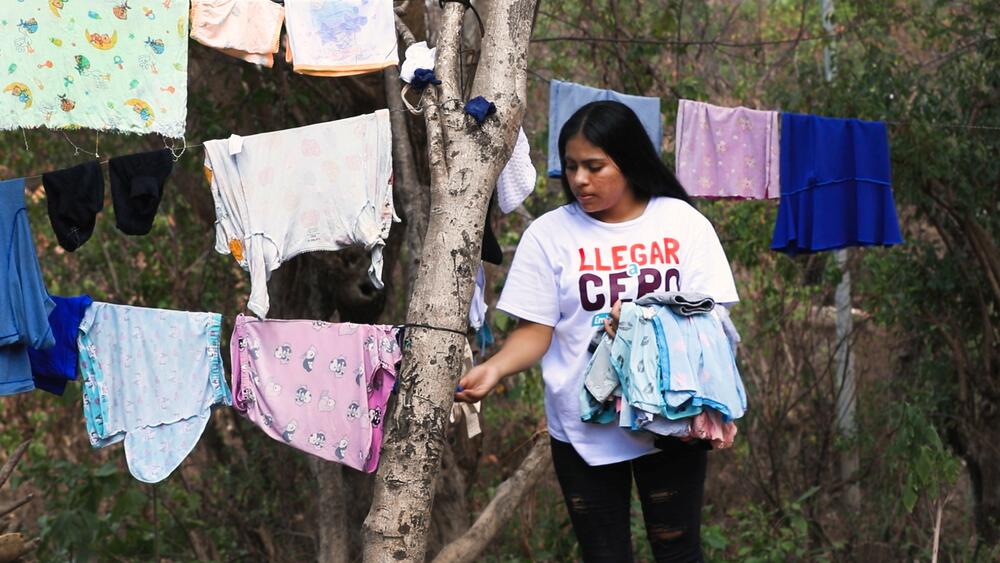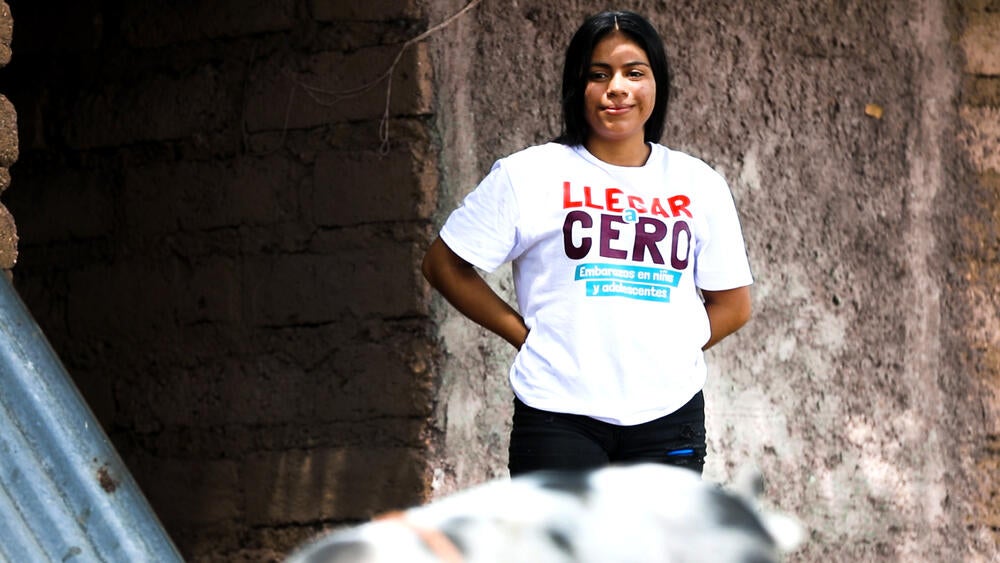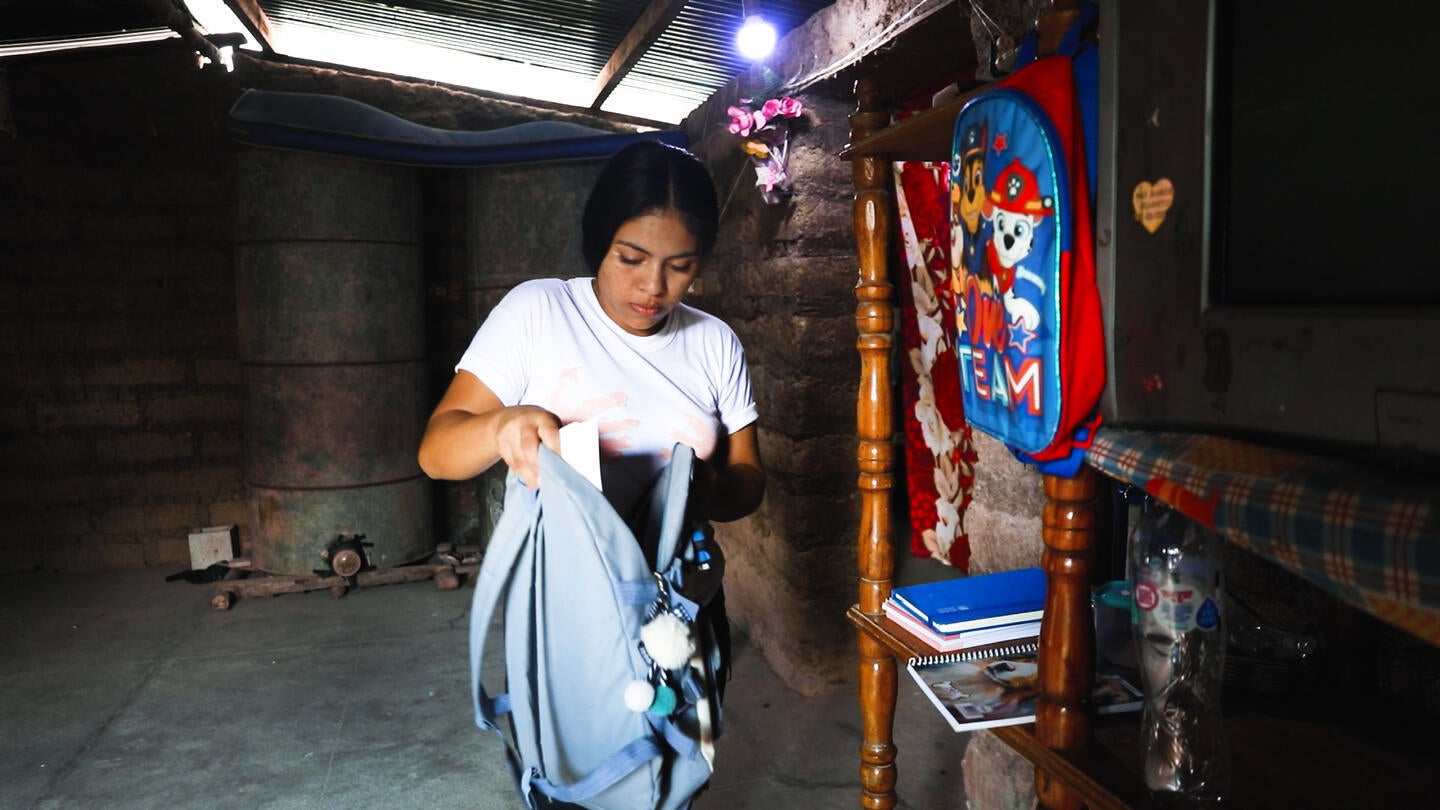Katherine Torres' life changed when she was just 14 years old: she became a mother. Now, at 19, she lives in a rural area among the mountains bordering Santo Domingo Guzmán, in the western department of Sonsonate, 76 kilometers from El Salvador’s capital.
“Becoming a mother was a really difficult process for me because, at that age, you don’t have the right knowledge to take care of yourself during pregnancy,” Katherine confesses.
During her pregnancy, she faced many difficult moments: “I was in eighth grade and had to make decisions every day: go to class and also go to prenatal checkups. Sometimes I missed one for the other. It was really hard. Honestly, I cried a lot, almost throughout the whole pregnancy. I cried because I didn’t know what to do.”
In 2022, she separated from her child’s father because he didn’t want her to continue studying. “He would tell me, ‘it’s too expensive, it takes too much time, you have other responsibilities at home.’ I thought: I can’t keep going like this with him. I felt something strange, like I was being tied down.”

According to UNFPA data, in El Salvador, more than a third of women who had their first child between ages 10 and 19 had never attended secondary school. However, Katherine stood firm in her decision to continue her education and found the support she needed from her mother and community.
“At the time of the separation, my mom supported me unconditionally,” Katherine says with emotion and gratitude, adding, “not all girls get that. Many, when they have children at an early age, are rejected by their families and thrown out of their homes. My mom told me: ‘If you feel safe here, I’ll open my doors to you. I’ll take care of the baby.’”
Returning to School
That same year, Katherine resumed high school. She enjoys studying and participating in class. She's very active. One day, her life skills teacher told her about workshops being offered at the Santo Domingo de Guzmán municipal office, part of the Ending Child and Adolescent Pregnancies project, promoted by UNFPA.
“It felt like I saw a light in the darkness I was feeling. I thought: I have somewhere to go.”

Through the Ending Child and Adolescent Pregnancies Initiative, a training plan in entrepreneurial skills was developed, specifically designed for pregnant teenagers or young mothers. The program has empowered girls by helping them build entrepreneurial skills and start their own businesses while continuing their education. The goal is to expand their economic autonomy.
Katherine is one of these teenagers and now runs a small pig farming business that fills her with hope and opens new doors for a more prosperous future.
Her mother accompanied her to the first workshops, bringing the baby along too. “It was a really beautiful experience that has lasted two years. I remember staying up late at that time. I had to fill out forms, do the math, figure out how much money I’d need to start – since they gave us an initial amount of funding. That’s how I began my business.”
She remains part of the project, and her son – now four years old – is attending kindergarten. Katherine is now a university student in her second semester of a degree in Psychology.
“My university is far away—almost four hours from home. I’m studying Psychology because I want to help people. I want to be a light for other girls going through difficult times like I did. I want to help them, guide them, and share knowledge and experiences.”
Ending child and adolescent pregnancies requires addressing three key challenges: First, universal educational access, especially for those most vulnerable to early unions. Second, all forms of violence against girls and adolescents, including sexual violence, must be combated. Third, it is crucial to implement age-appropriate, scientifically accurate education and information strategies.
In El Salvador, UNFPA supports the country in eradicating adolescent pregnancies through a rights-based, evidence-based approach.


